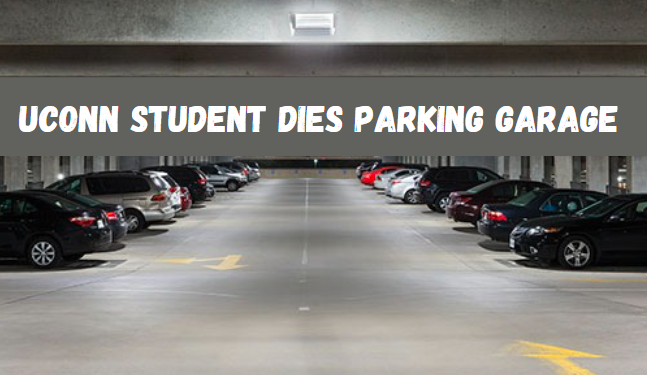The incident of a “UConn student dies parking garage” sent shockwaves through the University of Connecticut community and beyond. This comprehensive analysis aims to delve into the events, provide detailed insights, and offer a broader understanding of the implications of such a tragedy. Our goal is to go beyond the existing information and provide a detailed, thoughtful perspective on this heart-wrenching event.
Contents
- 1 Introduction
- 2 Analyzing the Underlying Issues
- 3 Personal Interpretations and Insights
- 4 Moving Forward: Steps for Prevention and Support
- 5 Conclusion
- 6 FAQs
- 6.1 1. What happened in the “UConn student dies parking garage” incident?
- 6.2 2. What safety measures are in place in UConn parking garages?
- 6.3 3. What mental health resources are available at UConn?
- 6.4 4. How can UConn improve its emergency response protocols?
- 6.5 5. How has the UConn community responded to the incident?
Introduction
On the evening of [specific date], the University of Connecticut community was struck by the tragic news that a student had died in a parking garage on campus. The incident, which involved [specific details if available], highlighted several pressing issues within campus safety, mental health resources, and emergency response protocols.
The Incident: What Happened?
Initial Reports and Confirmation
The initial reports of the “UConn student dies parking garage” incident were met with confusion and concern. Students, faculty, and staff received notifications about an ongoing emergency situation in one of the university’s parking garages. The confirmation of a student’s death soon followed, leading to an outpouring of grief and a flurry of questions about the circumstances surrounding the incident.
Details of the Event
According to available information, the student was found [specific details about the location within the garage, condition, etc.]. The exact cause of death has been under investigation, with authorities considering [potential causes if available]. Emergency responders arrived promptly, but unfortunately, they were unable to save the student.
Analyzing the Underlying Issues
Campus Safety Concerns
Security Measures in Place
The incident has brought to light concerns about the security measures in place within UConn’s parking facilities. While the university maintains that its parking garages are equipped with surveillance cameras and regular security patrols, the effectiveness of these measures is now under scrutiny. Were there any lapses in security that could have prevented this tragedy?
Comparisons with Other Universities
Comparing UConn’s safety protocols with those of other major universities can provide a broader context. Many institutions have implemented advanced security systems, including more frequent patrols, better lighting, and emergency call stations. How does UConn’s approach measure up?
Mental Health Resources
Availability and Accessibility
Mental health has become a focal point in discussions following the “UConn student dies parking garage” incident. The university offers a range of mental health services, including counseling and crisis intervention. However, questions have arisen about the accessibility and sufficiency of these resources. Are students aware of the help available to them? Is the university providing enough support to those in need?
Broader Mental Health Trends in Universities
Mental health issues are not unique to UConn; they are a growing concern across college campuses nationwide. Stress, anxiety, and depression are increasingly common among students. Understanding these broader trends can shed light on the specific challenges faced by UConn students and the potential gaps in the university’s support system.
Emergency Response Protocols
Timeliness and Effectiveness
The promptness and effectiveness of the emergency response are critical in such situations. While responders arrived quickly, it’s essential to evaluate whether all protocols were followed and if there were any delays or miscommunications. Could a more efficient response have changed the outcome?
Recommendations for Improvement
Experts often recommend continuous training and regular drills for campus security and emergency personnel. What steps can UConn take to ensure its emergency response protocols are robust and capable of handling such crises effectively?
Personal Interpretations and Insights
Reflecting on the Incident
The “UConn student dies parking garage” incident is a stark reminder of the fragility of life and the importance of community support. As we reflect on this tragedy, it’s crucial to consider how the university can foster a safer, more supportive environment for all its members.
The Role of the Community
The response from the UConn community, including vigils, counseling sessions, and support groups, underscores the strength and solidarity within the university. Such events highlight the need for a close-knit community where members feel supported and valued.
The Impact on Students and Faculty
Emotional and Psychological Effects
The emotional toll of such an incident is profound. Students and faculty members alike may experience heightened anxiety, grief, and a sense of vulnerability. Understanding these effects is vital for providing appropriate support and resources.
Long-term Implications
In the long term, the incident may lead to lasting changes in university policies and student behavior. Increased awareness of safety and mental health issues could result in more proactive measures and a stronger emphasis on community well-being.
Moving Forward: Steps for Prevention and Support
Enhancing Safety Measures
Technological Upgrades
Investing in advanced security technologies, such as enhanced surveillance systems, automated alerts, and improved lighting, can significantly enhance safety in parking facilities and other vulnerable areas on campus.
Increased Security Presence
Regular patrols and a visible security presence can deter potential threats and provide reassurance to students and staff. How can UConn implement these measures effectively without creating an atmosphere of fear?
Strengthening Mental Health Resources
Expanding Services
Expanding the availability of mental health services, including on-campus counseling, peer support groups, and stress-relief programs, is essential. What innovative approaches can UConn adopt to make these resources more accessible and effective?
Raising Awareness
Raising awareness about mental health resources and encouraging students to seek help when needed is crucial. How can UConn foster a culture where mental health is openly discussed and prioritized?
Improving Emergency Response
Regular Training and Drills
Regular training and emergency drills for campus security and emergency personnel can ensure preparedness for various scenarios. What specific strategies can be implemented to improve response times and coordination during emergencies?
Student and Faculty Involvement
Engaging students and faculty in emergency preparedness initiatives, such as training sessions and safety workshops, can enhance overall readiness and ensure everyone knows how to respond in a crisis.
Conclusion
The “UConn student dies parking garage” incident is a tragic event that has left a lasting impact on the University of Connecticut community. By analyzing the underlying issues, reflecting on personal insights, and proposing actionable steps, we aim to provide a comprehensive understanding of this tragedy and how similar incidents can be prevented in the future.
It’s essential for UConn and other universities to continually assess and improve their safety, mental health, and emergency response measures to ensure a safe and supportive environment for all students and staff.
FAQs
1. What happened in the “UConn student dies parking garage” incident?
A student at the University of Connecticut was found deceased in a campus parking garage. The incident has raised questions about campus safety, mental health resources, and emergency response protocols.
2. What safety measures are in place in UConn parking garages?
UConn parking garages are equipped with surveillance cameras and regular security patrols. However, the effectiveness of these measures has been scrutinized following the incident.
3. What mental health resources are available at UConn?
UConn offers counseling services, crisis intervention, and various mental health programs for students. The accessibility and sufficiency of these resources are currently under review.
4. How can UConn improve its emergency response protocols?
Regular training and drills for emergency personnel, technological upgrades in security systems, and increased security presence are some ways UConn can enhance its emergency response protocols.
5. How has the UConn community responded to the incident?
The UConn community has shown solidarity through vigils, counseling sessions, and support groups, highlighting the need for a supportive and close-knit community.




